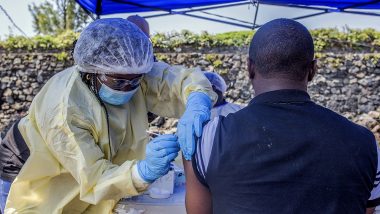Cue nightmares: There is a new Ebola outbreak and has been declared a global health emergency. Before your doom-spiral, slow it way down – this outbreak is still in its infancy (as compared to the 2014 outbreak in West Africa, which spread to seven additional countries). Still, the current outbreak is concerning for several reasons. The World Health Organization has declared the Ebola crisis in the Democratic Republic of Congo a ‘public health emergency of international concern’. The outbreak in DR Congo has killed more than 1,600 people already. Here’s what you need to know about the facts of this deadly disease.
Is There A Vaccine To Prevent Ebola?
The vaccine for Ebola was developed during the epidemic in West Africa and has been available throughout the latest outbreak. It is 99 percent effective. Vaccines for Ebola can now protect us from the deadly disease.
Could This Disease Spread Further?
According to WHO, the risk to neighbouring countries is ‘very high’. Uganda has already had some isolated cases including two people. A priest is also reported to have died of Ebola in Goma.
What’s worrisome right now is that the Ebola's arrival in Congo marks this outbreak's major case in a huge region, which makes the disease harder to contain, increasing the risk of Ebola moving into neighbouring countries. US begins testing Ebola treatment in early-stage trial.
You Live In India – How Worried Should You Be?
You do not need to be worried, at least not right now. This is not something you need to fear immediately. While the Ebola virus is deadly, it is not an air-borne disease and it does not spread rapidly. You will get Ebola only if you are exposed to the fluids of the people who are already affected. So, as of now, you don’t have to take any special precaution.
Fast Facts on Ebola
Ebola Refresher: What Are Its Symptoms?
Ebola haemorrhagic fever spreads either by direct contact with infected animal animals like bats or someone who is infected or has died of the virus. Remember, humans, are not infectious until they develop symptoms. Flu-like symptoms appear at first along with fatigue, fever, muscle pain, headache, and sore throat. The symptoms get worse and are eventually followed by vomiting, diarrhoea, internal and external bleeding.
Is There Any Treatment For Ebola?
While supportive care like treatment of specific symptoms and oral and intravenous fluids can improve survival rates, there is no treatment for Ebola. It is extremely deadly as the disease has been shown to claim the lives of half of the people it infects.
Bottom line: A new Ebola outbreak is always scary but since world health leaders are moving fast to keep this one contained, there is no need to be anxious as of right now. In fact, the WHO has shipped thousands of doses of a newly developed Ebola vaccine to infected areas, in an attempt to ‘encircle the outbreak’.
(The above story first appeared on LatestLY on Jul 18, 2019 12:18 PM IST. For more news and updates on politics, world, sports, entertainment and lifestyle, log on to our website latestly.com).













 Quickly
Quickly


